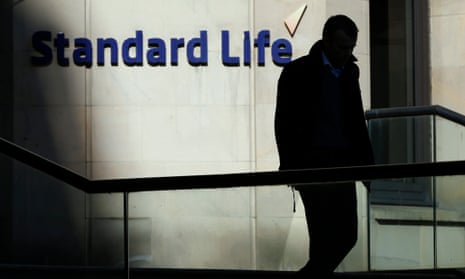The UK’s fund management industry is “ripe for investigation” because of “an alarming lack of transparency that surrounds [its] pay and practices”, the influential Institute of Directors said on Sunday.
Simon Walker, director general of the IoD, said “uninterested” financial regulators should wake up “to avoid another scandal of epic proportions.”
Writing on the Guardian’s website, Walker said there are reasons to be proud of the fund management industry in the UK but argued that more clarity is required about how it operates “and most pertinent of all, how salaries are earned.” Without such openness, he said, fund managers risk losing public trust and making themselves “the new investment bankers.”
He cited last week’s £18m fine for Aviva Investors, the fund management division of giant insurer Aviva, as one cause for concern. Traders were found to have manipulated deals to boost their fees at the expense of customers.
Walker also pointed to Standard Life’s £5m pay packages for David Nish, the chief executive, and Keith Skeoch, its head of the investment division. “If fund manager earnings continue to rise in line with assets, with little or no transparency about how they operate, then their reputations as prudent custodians of other people’s money could start to unravel,” said the IoD boss.
Walker quoted research by European thinktank New Financial showing pay at asset management firms is taking a constant portion of a “growing pot.” By contrast, he said, investment bankers are receiving a smaller helping of a shrinking pot.
He said: “This has all the ingredients of another scandal, where public attention turns slowly to a shady quarter of our financial landscape, and doesn’t like what it sees. Until we really understand the mechanisms of this industry the risk remains that fund managers will become the new investment bankers.”
The IoD, which has 38,000 members ranging from bosses of multinationals to entrepreneurs running start-ups, will on Monday launch a paper setting out its recommendations on corporate governance, a key focus for its work.
One proposal is to encourage the government to work with regulators – primarily the Financial Conduct Authority (FCA) – to review the fund management industry with the aim of creating “a more transparent and governance-oriented share ownership system.” The IoD backs the Labour party’s call for fund managers to be forced to declare how they vote on pay and other resolutions at companies’ annual meeting.
Walker argued that fund managers have been protected from scrutiny by concentration on bankers’ bonuses. “It is important for the entire UK business community that fund managers are effective overseers of good governance, rather than mere absentee landlords. Unless that happens, policy makers will inevitably lose faith in the ability of shareholders to act as custodians of public companies.
“They will be drawn to the temptation of legislating and regulating to shape directly corporate governance arrangements in the UK. If the fund management industry doesn’t take steps to address growing public concern about their practices and oversight, then an FCA-driven approach may be the only way forward.”
The IoD has been vocal in recent years in naming companies where it perceives failings in governance and pay policies. Targets have included Sports Direct, Burberry, Experian and Essar Energy. It also opposed a proposed £25m pay deal for Helge Lund, BG Group’s new chief executive, describing it as “excessive, inflammatory and a red rag to the enemies of the free market.” BG later reduced the size of Lund’s award.
Walker has argued previously for shareholders to be more active in holding boards to account, but his demand for greater regulatory scrutiny of the fund management industry itself is new.
Standard Life said 2014 had been a “pivotal year” following the disposal and acquisition of businesses. “The awards made to executive directors reflect this strong performance and the value generated for shareholders,” Standard Life said. The share price has risen from 233p when the share awards were made in 2012 to 400p by the time they paid out to the executives.
“In order to confirm that the approach was fair and appropriate, the Remuneration Committee undertook a detailed review and an extensive consultation process with major institutional shareholders,” Standard Life said.




Comments (…)
Sign in or create your Guardian account to join the discussion